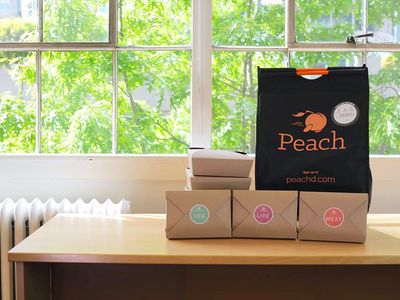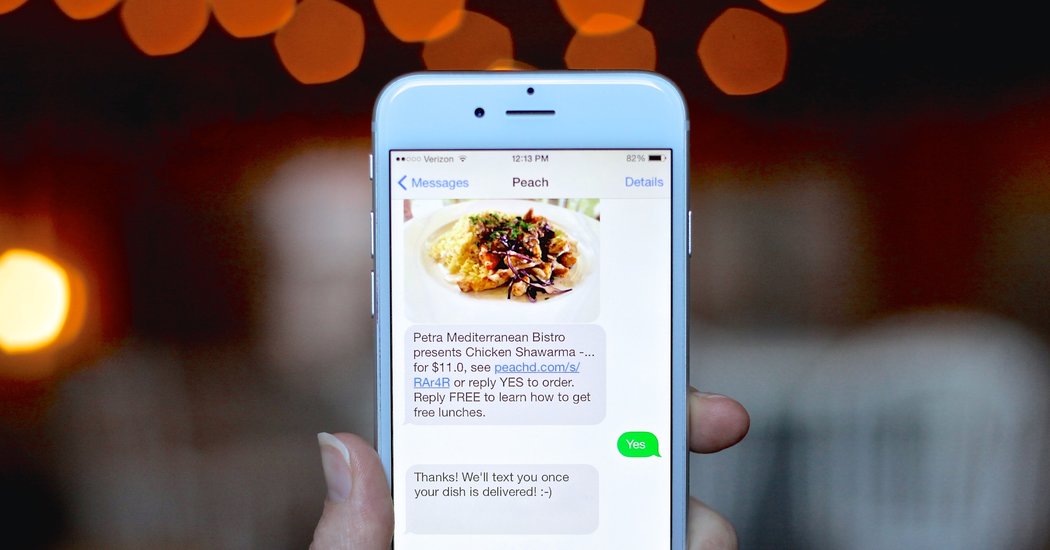Business
Lunch Delivery Service Peach Picks Up $8 Million in a Series A Funding
Peach, a growing lunch delivery service, has secured $8 million from Madrona Venture Group and Vulcan Capital. Peach, which currently operates in Seattle, WA, and San Diego, CA, delivers lunches from local restaurants and mainly targets office workers.
The Investors
Peach says Seattle’s Madrona Venture Group led the current Series A funding round, which was joined by Paul Allen’s Vulcan Capital. Madrona, Vulcan, and Maveron all contributed to the $2.7 million in seed funding that Peach raised in mid-2014. Total funding for the company stands at $10.75 million.
The Peach Model
Once users sign up for an account — which includes placing a credit card on record for payment and picking their place of work — users can order their lunches for an entire week ahead of time, or they can place the order the day of. If a user responds to the texted link with a “yes,” the food is delivered to a predetermined office building by lunchtime.
Restaurants decide what selections they will offer through Peach in a given week, and Peach creates a weekly menu that it delivers to users via text message. Users can order all their lunches for a week, or they can order on the morning of the day they wish to have lunch at their desks.
Another delivery service, SpoonRocket, shut down in Seattle after just four months. It assured Paseo’s to deliver its sandwiches free, delivering individual orders to several locations using vehicles specially equipped to keep foods warm.
Instead, Peach accumulates orders from workers at the same corporate location, say, a company’s campus in Seattle. Participating restaurants can then potentially send dozens of sandwiches to a single business rather than delivering a sandwich here and a sandwich there.
The restaurants handle the delivery but Peach will help them coordinate with a third party delivery service if they wish to do so.
App-less Service
Unlike similar companies, such as Seamless and PostMates, there is no app. Instead, the company creates a weekly menu that it delivers to users via text message.
While it is strange that the company does not have an app, it appears as if the simplified text message system offers fewer opportunities for errors in the order. The company says that it has delivered over 400,000 lunches since it launched last June.
Profit
Peach uses a somewhat different model than PostMates and GrubHub, which charge users a fee for delivering food from the restaurants they serve. Instead, Peach tacks a percentage onto what a restaurant would charge for a sandwich or salad. “Say a restaurant prices a sandwich at $9.50,” Mr. Singh said. “We add 20 percent to the price, and that’s what the restaurant pays us.”
Peach has partnerships with 125 restaurants across the two cities. The company takes about 15 to 20 percent of each sale, and the restaurant keeps the rest. However, the dishes are usually marked up from their original prices so that the restaurants aren’t taking a steep hit.
Where will the funding go?
Peach will use the money to expand to new cities: “This money is going to be pumped into expansion and making Peach a more successful business”, says Singh. First up is Boston, which will then be followed by Washington, DC.
The investment will allow Peach, which says it has delivered more than 400,000 lunches since it started in June 2014, to expand its operations to Boston and Washington. “We’re looking to grab as much market share as possible,” he added.
The company also plans to use the funding to hire an additional 20 staff member.
There has been a recent rise in lunchtime delivery services and perhaps the largest company to enter the arena is driver service Uber. The company recently expanded its UberEats program. The service offers a handful of curated daily options from local restaurants each day. Users select the dish they want and an Uber car delivers the meal curbside. UberEats is currently available in New York City, Chicago, Los Angeles, Barcelona, and most recently, Austin.























